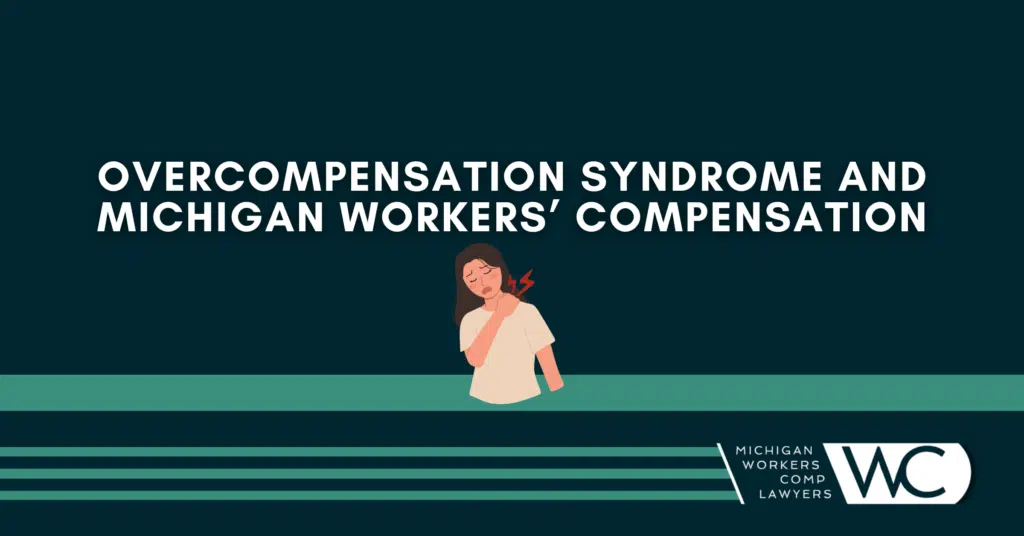
Learn how to protect your legal rights under workers’ comp in Michigan.
Many of our clients suffer from a type of overcompensation syndrome. This is when they use other body parts in ways that are more strenuous than usual because of a work injury. It can result in back, knee, or shoulder problems.
We regularly see disabled employees favoring one body part over the other. For example, hurting your right knee at work and then your left knee at home because of knee overcompensation. The same principle applies to disabled employees who develop an overcompensation shoulder injury. A disabled employee can also develop problems with their hands, arms, elbows, and hip from using crutches.
Getting hurt on-the-job is stressful. Finding out that an insurance company won’t cover an overcompensation injury can be a real nightmare. We understand the problems individuals face and want to help. Here is some information that every disabled employee should know about workers’ comp in Michigan.
What about wage loss benefits for a knee overcompensation injury or an overcompensation shoulder injury?
Disabled employees are supposed to get 80% of their after-tax average weekly wage under workers’ comp. This continues for as long as needed. It is tax-free money and a safety net for disabled employees to rely upon.
Sometimes an employee recovers from his or her original work injury but develops an overcompensation syndrome. The insurance company will typically stop paying wage loss benefits under this scenario. It is common to see a Notice of Dispute at this time.
Disabled employees can seek additional wage loss benefits under workers’ comp for knee overcompensation. The same is true for an overcompensation shoulder injury. Make sure to call an experienced lawyer if wage loss benefits have been unfairly stopped.
Is there access to medical treatment?
Access to medical care is one of the most important benefits under workers’ comp. All reasonable and necessary medical treatment should be covered without any co-pays or deductibles. Employees can select their own medical providers after 28 days from the start of medical care.
Protecting legal rights for an overcompensation syndrome requires good medical documentation. It is critical that a disabled employee tell his or her doctor about any knee overcompensation or an overcompensation shoulder injury. Documentation in medical records can be used to prove entitlement to additional medical treatment.
Proving overcompensation syndrome
The general rule is that an injury must arise out of and be in the course of employment to be covered under workers’ comp. Overcompensation syndrome can start anywhere and at any time. This includes your home or during physical therapy.
Proving knee overcompensation or an overcompensation shoulder injury requires medical evidence from a doctor. Make sure to give your doctor a complete history about how the syndrome began. Explain how a new body part hurts because of more strenuous than usual activity. Ask for a causation opinion and additional work restrictions.
Suffering from overcompensation syndrome from an injury on the job? Call now, our attorneys can help!
If you are suffering from overcompensation syndrome from working on the job in Michigan, have questions about your legal rights to workers’ comp benefits, call now to speak with an experienced attorney, or fill out our contact form for a free consultation. There is absolutely no cost or obligation. We’re here for you.
Our attorneys have been exclusively helping injured workers in Michigan for more than 35 years. Our attorneys can help you better understand Michigan laws and what happens after someone has been hurt on the job. To see what our own clients have to say about the caring, compassion, and communication they received from us, you can read in their own words about their experience here on our testimonials page from clients we have helped.
Michigan Workers Comp Lawyers never charges a fee to evaluate a potential case. Our law firm has represented injured and disabled workers exclusively for more than 35 years. Call (844) 201-9497 for a free consultation today.
Related information:


